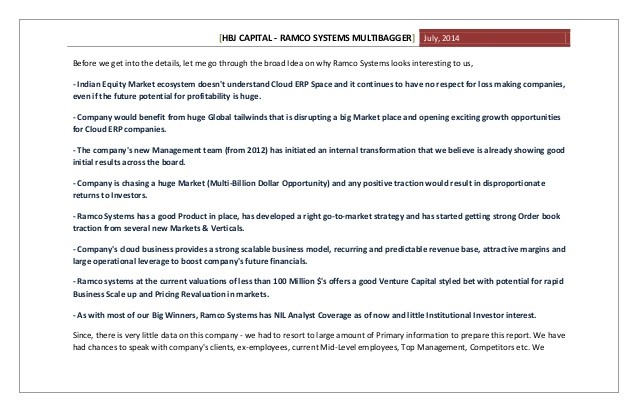Check on Institutional Ownership before Buying Stock ~ Experts in Exploring Multibagger Small Cap
Post on: 13 Май, 2015 No Comment

Check on Institutional Ownership before Buying Stock
Before you buy a particular stock, you may want to find out whether existing large shareholders are buying more or selling off their shares. This can help you evaluate the stock in the context of how their actions may influence the stock’s price.
The reality for most well known stocks is institutions (mutual funds, large accounts such as retirement funds and pension funds, and so on) hold the majority of outstanding shares. You may want to consider this information when evaluating a particular stock.
These large companies and institutions (known as Foreign Institutional Investors as well as Domestic Institutional Investors) employ teams of analysts to invest billions of dollars. It makes sense that they are going to spot good places to put their money, right?
The answer is a definite yes and no.
Of course, they are looking for a good return on their investments just like the rest of us. They look for good companies with good growth prospects, most of the time.
If the institutional investors are buying a stock, that is an endorsement of sorts that the stock has good prospects. If they are selling, it could mean something is wrong.
Before we talk about the value of this information, let us show you where to find it. The quickest way to do that is to use one of many online services that capture that data for you.
We like BSE & Moneycontrol website. Enter the stock symbol or code of the company you are researching, and then look at its share holding pattern, BSE provides information on share holding for past quarters. To see recent buying and selling of stocks by domestic mutual funds, you can use Moneycontrol.
It is wrong to assume that institutional investors and individual investors share common goals. Institutions often have performance goals to meet, which push them to trade much more frequently than a normal individual investor.
For example, it is not uncommon for a growth mutual fund to turnover its portfolio 100% in one year. That means the fund managers have bought and sold every holding in the fund in one year.
This type of activity may drive them to buy or sell a stock with little regard to the underlying companys fundamentals. You could see a big mutual fund dumping their shares of a stock and incorrectly assume there was something wrong with companys future prospects.
This brings up another real danger of institutional ownership of a stock. When institutions become interested in a stock, they can drive up the price quickly with their huge block orders.

Just as quickly, the stock can collapse if the institutions decide the stock is flawed or there is a better opportunity with another stock. If they begin pulling their money out in big chucks, it will drive down the price. More institutions bail out and the stock goes into a free fall.
Could you recall Satyam story? Nobody expected that the price will fall from 170 Rs levels to a single digit price of Rs 8 in just 3 days. It was because of institutional investors, who sold off entire stake of Satyam.
What are investors to make of institutional ownership of a stock they want to buy?
First, most stocks will have some institutional ownership unless they are very small.
Secondly, watch for big changes one way or the other in ownership are the institutions buying or selling. A change by a large number of institutions could mean something significant has changed at the company.
Finally, dont ignore the companys fundamentals. They still tell the best story about a companys long-term chances for success in building value.














